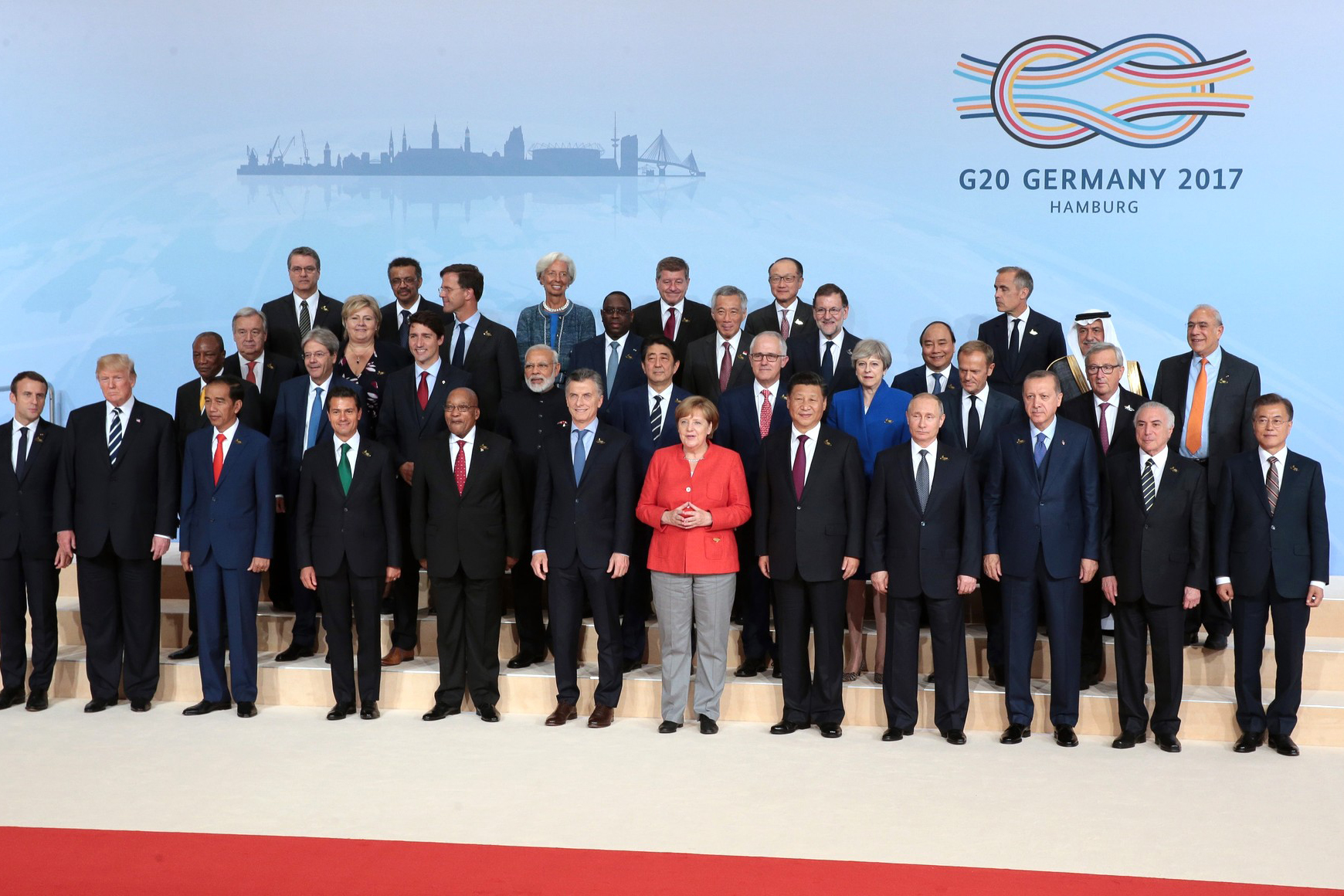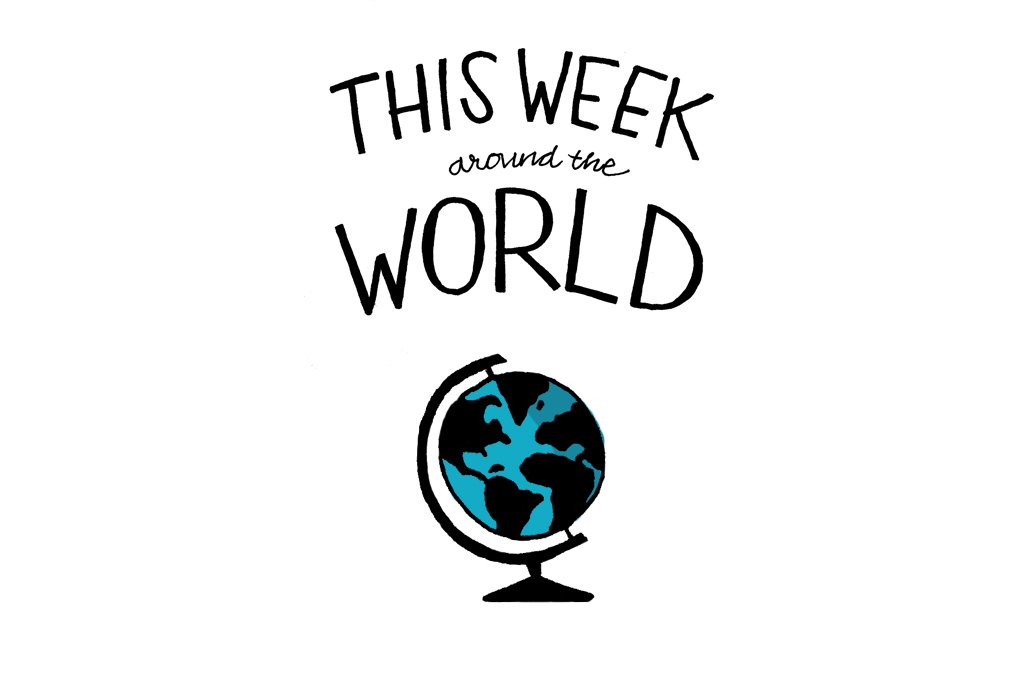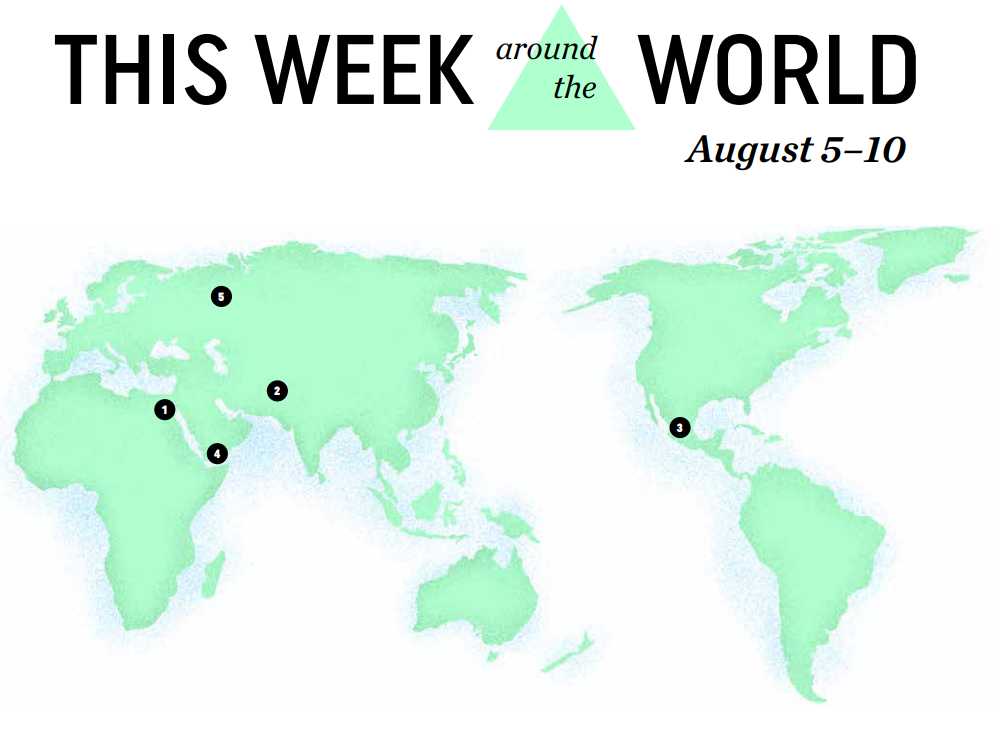The G20, or Group of Twenty, summit meeting was held in Hamburg, Germany on July 7 and 8 to discuss global economic issues, including climate change, terrorism, migration, and free trade.
Participants in the G20 make up twenty of the world’s largest economies, including Canada, China, France, Germany, India, Italy, Japan, Mexico, Russia, Saudi Arabia, the U.K. and the U.S. The European Union was represented by the European Commission and the European Central Bank.
According to the World Bank, the countries participating in the G20 summit make up four-fifths of the world’s gross product, which is the total gross national product of all the countries in the world combined. They also represent two-thirds of the world’s population.
The G20 was initially created in order to focus on issues concerning global economic stability, such as trade and the regulation of financial markets. More specifically, the G20 seeks to strengthen financial systems throughout the world.
The summit does not create law nor does it directly influence legal action. Conceived following World War II as a venue to coordinate international economic policy, it is more of a meeting that focuses on international change and cooperation. The presidency of the G20 summit changes annually; this year’s president was Germany.
Trade
As in past summits, disagreements regarding steel production continued to be an issue. The dispute is centered China’s higher annual output than other nations, which has caused global steel crises in the past. Although a conclusion was not reached during the summit, the group bought a few weeks to try and resolve dumping concerns.
The U.S. blamed China and Europe for charging a lower price for steel in foreign markets and in response has threatened to implement a protectionist tariff to protect against the continued dumping of steel into the market.
Overproduction of steel has caused prices to plummet to an all-time low. As a consequence, steel mills are shutting down; over 13,000 workers in the U.S. alone have been laid off.
Climate Change
In a G20 declaration, Chancellor of Germany Angela Merkel made a statement regarding U.S. President Donald Trump’s decision to withdraw the U.S. from the Paris Climate Accord, an agreement that requires countries to lessen carbon emissions in order to prevent further consequences of global warming.
“Unfortunately, and I deplore this, the United States of America left the climate agreement, or rather announced their intention of doing this,” Merkel said.
Overall, the U.S. did not agree on global climate change policies; however, all other countries attending the G20 summit will continue to pursue climate protection by implementing renewable energy sources.
Members of the G20 summit were unsuccessful with previous lobbying efforts to dissuade Trump from exiting from the Paris climate accords, and Turkish President Recep Tayyip Erdoğan has announced Turkey will not be ratifying the accord, citing Trump’s decision.
Inclusivity
Another topic of discussion during the summit was the inclusion of developing nations in the global economy. The G20 group members talked about producing equal and fair trade deals that do not discriminate against developing countries.
The G20 summit agreed on the importance of entering into partnerships with developing nations in order to help their economies. One example was a multilateral fund that will be implemented to help support women in developing nations. Additionally, two new initiatives have been created, #eSkills4Girls and the Women Entrepreneurs Finance Initiative. #eSkills4Girls is focused on further developing education while the Women Entrepreneurs Finance Initiative will help young women in developing countries pursue business management.
Terrorism
All members of the summit agreed to combat terrorism and ideologies of groups that spread hate and violence. Additionally, Trump and Russian President Vladimir Putin discussed improved cybersecurity measures when it comes to election hacking and other cyber threats. Trump and Putin also reached a cease-fire and de-escalation agreement that will temporarily halt Syria’s six-year civil war.
I’m currently attending the MFA creative writing program with an emphasis in nonfiction at Portland State and hold a master’s in English with a concentration in book publishing. Managing content across different platforms, I incorporate creativity and honesty to connect and engage with our audience.






